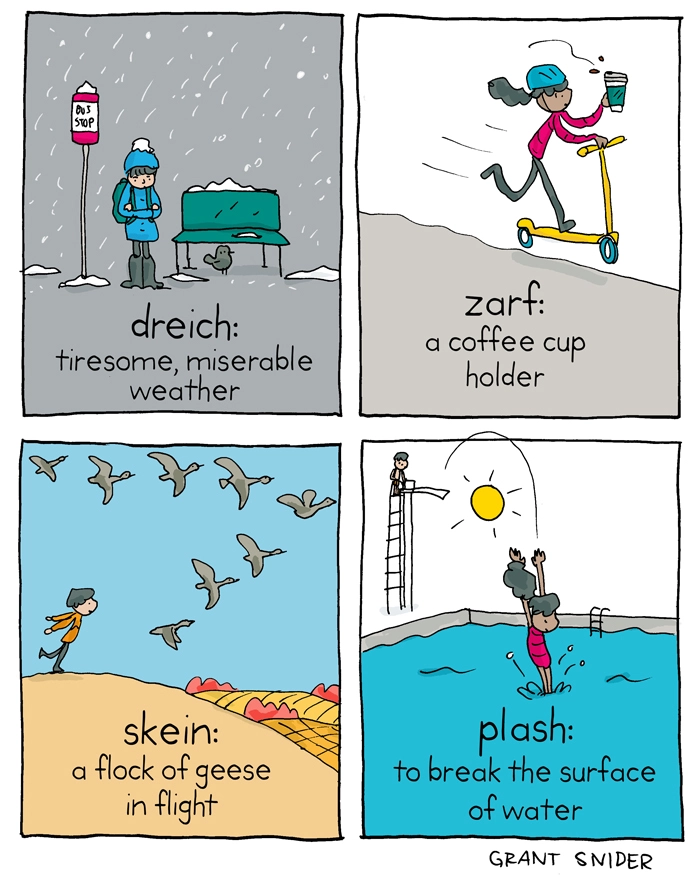this post was submitted on 29 Feb 2024
211 points (93.8% liked)
Comic Strips
14106 readers
2957 users here now
Comic Strips is a community for those who love comic stories.
The rules are simple:
- The post can be a single image, an image gallery, or a link to a specific comic hosted on another site (the author's website, for instance).
- The comic must be a complete story.
- If it is an external link, it must be to a specific story, not to the root of the site.
- You may post comics from others or your own.
- If you are posting a comic of your own, a maximum of one per week is allowed (I know, your comics are great, but this rule helps avoid spam).
- The comic can be in any language, but if it's not in English, OP must include an English translation in the post's 'body' field (note: you don't need to select a specific language when posting a comic).
- Politeness.
- Adult content is not allowed. This community aims to be fun for people of all ages.
Web of links
- [email protected]: "I use Arch btw"
- [email protected]: memes (you don't say!)
founded 2 years ago
MODERATORS
you are viewing a single comment's thread
view the rest of the comments
view the rest of the comments

Dreich is a Scots word. Skein is too but I think it's borrowed from Gaelic.
Zarf is Arabic, and plash is Dutch.
Old English plæsc. Possibly cognate of, but not borrowed from Dutch plas (puddle)
Zarf sounds like a Pinky adlib
I thought Scots is a Gaelic language. Am I missing something?
Scots is close enough to English that some scholars say it's a dialect and others say it's it's own language.
A while back, a teenager wrote many of the articles on the Scots Wikipedia thinking it was just an accented English. It was a mess.
I gave up editing wikipedia years ago. My edits would be swamped with reverts and snarky comments because the information didn't agree with intro textbooks. In at least one case it turns out an instructor was giving extra credit to students to "correct" information. The textbook they were using was deeply flawed of course. But there you are.
I remember reading that Wikipedia was just phase one of the project where draft articles were written. Phase two was a more formal project where experts would refine the draft articles and they would be peer reviewed. Unfortunately, production was slow and Wikipedia took off so the project was effectively abandoned after a few years. Too bad. What field were you writing in?
Neuroscience. I think the last straw was where I had a review article on a specialist topic rejected from a couple of fancy journals. Rather than rewrite it for a lower tier, I modified it for Wikipedia. It got insta-banned and I got scolded/black marked for plagiarism. It was truly a "but I am Pagliacci" moment. Nobody in the chat page believed it or seemed to want to listen.
Sorry to hear that. What a weird experience. Glad you removed yourself from a bad situation. Cheers!
Well you know the tenure treadmill. This was 15+ years ago so Wiki contributions weren't counted towards professional activity. It literally wasn't worth the effort given the other options. Cheers to you as well!
No, the two languages have separate roots. Gaelic is often called Scots Gaelic to distinguish it from Irish, though.
Thanks for that. My family immigrated from Scotland a billion years ago or so, and we were always told they spoke mostly Gaelic. When I look at the language map they were from the Gaelic speaking islands that I now know are part of the Goidelic language family. Scots is in the south and part of the Brittonic language family. I can see more reading ahead.
Scots is Germanic. Brittonic is a subfamily of Celtic languages that includes Welsh and Cornish.
I am getting dumber by the minute. lol.
Dreich is also used in Breton (another Celtic language).